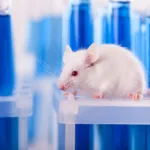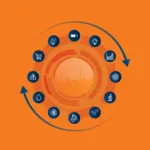Our commitment to people and the environment
The European Commission’s ‘zero pollution ambition for a toxic free environment in Europe – building a Healthier Planet for Healthier People’ is, together with the Chemicals Strategy for Sustainability, one of priority actions of the EU Green Deal towards a clean healthy ecosystem and environment. Another priority action is the European Union aspiration to become climate neutral by 2050.
The chemical industry shares the same goal as all EU citizens; to live in a world where the risks of using chemicals are minimised to protect the environment and people’s health, and any impact on future generations is reduced to the lowest level possible.
Over the past 30 years, the EU chemical industry reduced its greenhouse gas (GHG) emissions by more than 60%. Our commitment to cutting GHG emissions and protecting resources is central to our mission, and extends beyond mere compliance with European legislation. For instance, our long-standing Responsible Care® programme unites the industry in promoting safe chemical management and driving ongoing operational improvements. With Europe’s REACH regulation setting the world’s most advanced chemical legislation, the industry remains dedicated to building on this strong foundation to protect our environment.
These advances towards climate neutrality and emissions reduction represent both opportunities and challenges for our industry.
Improving our environmental performance at production sites
Reducing industrial emissions is a central target for the chemical industry. We are committed to working as a sector to constantly improve our production processes, to contribute to the shift towards a resource efficient, circular and low-carbon economy, and share our knowledge in doing so with others. The latest environmental data has shown the level of pollutants emitted by the EU chemical industry has dropped significantly over the past years. For instance, greenhouse gas (GHG) emissions have declined by 53% since 1990 and acidifying emissions have fallen by 70% since 2007. And we are working with all stakeholders to further improve this.
1. The Industrial Emissions Directive
Cutting emissions is also a priority of the European Union. Under the Industrial Emissions Directive (IED), industrial sites have to use best available technologies that are proven to reduce emissions. Based on this, emissions levels are binding and permits are granted. The directive will be transposed into national legislation by 2026. The European Commission will adopt several delegated/implementing acts in the next years, which will include updating the BREF guidance document.
Cefic supports the policy goals of the 2023 revision of the IED to protect the environment and people’s health from the adverse effects of pollution. It is now critical that the practicalities of the implementation of the Directive at national level supports industry’s transformation towards the 2050 goals and its competitiveness because a thriving EU chemical industry is instrumental for the success of the European Green Deal.
In our 10 point action plan, Cefic calls for guidance to Permit Authorities, maintaining ranges of associated emission levels (AELs) for granting permits, and aligning the Best Available Techniques Reference Documents (BREF) scope to cover both environmental and health concerns.
2. Best Available Techniques Reference Documents (BREFs)
To collect information on the Best Available Techniques (BAT) for limiting industrial emissions, the European Commission organises an exchange of information between Member States, the industries concerned, and environmental non-governmental organisations. The information collection, resulting in BAT Reference Documents (BREFs), is a complex, multistep and technical process. Once finalised, the BREFs impact all major manufacturing sectors across Europe with binding requirements for emissions. To participate in the BREF process as an industry representative, Cefic is a member of several Technical Working Groups (TWG), led by the European Bureau for Research on Industrial Transformation and Emissions (EU-BRITE), as well as the Article 13 Forum of Directorate-General Environment (DG ENVI) of the European Commission.
Cefic contributes to continuous improvement of industry’s environmental performance via the BREF process, and is fully aligned with the overall goal to reduce emissions. To support the Commission in applying the IED, Cefic is actively participating in Commission’s BREF review process.
Cefic calls on policymakers to:
- consider the specifics of each sector in terms of industrial production, to properly evaluate the Best Available Techniques for limiting industrial emissions.
- collect data, involving a wide range of stakeholders, as the BREF process is a data driven process.
- restrict the scope of BREFs to a limited number of key substances, i.e. substances that are of sufficient relevance across all chemical sectors and across Europe. In contrast, substances of limited or local/regional concern should be covered by the relevant national legislation.
Download Cefic position on Cefic additional remarks and comments to the Art. 13 Forum Workshop on the next BREF review cyclepaper
Maintaining soil quality
Healthy soils are crucial for our food security and biodiversity. As part of our commitment to the environment, our industry recognises the importance of European soils as a vital natural resource, and stresses the need to preserve soil quality.
With this, we offer recommendations for the Soil Monitoring Directive proposal to ensure the protection of soil quality and promote sustainable soil use within the EU. Overall, we support the principles of a risk-based and sustainable risk management of industrial sites, and we welcome this inclusion in the Directive.
Cefic recommends:
- Clarify the definition of ‘soil health’ in a way which differentiates soil and land uses, while also considering the end use. This would allow to prioritise soil actions where it matters most.
- Develop a nuanced approach to assess soil health: one that considers minor deviations and aligns with risk assessments. This will show detailed progress of soil over time, while avoiding all soils being labelled as unhealthy.
- Remove the voluntary soil health certification for land transactions: avoid unnecessary burden with limited benefits as well as potential market distortion.
- Site-specific risk assessments should be carried out by the liable party or, if undefined, by the competent authority. And these investigations should be based on the risk assessment rather than trigger events.
- Restrict EU register to contaminated sites: Listing sites with ‘potential contamination’, but with no actual evidence of soil contamination would raise public concern and financially impact sites owners.
- Exclude the artificial land from the application of soil health criteria: given industrial activities, it would be impossible for this land to be both “healthy” status and fit for purpose.
- Ensure penalties are proportionate to the nature and severity of the illegal conduct: Penalties should be designed in a way that encourages compliance.















